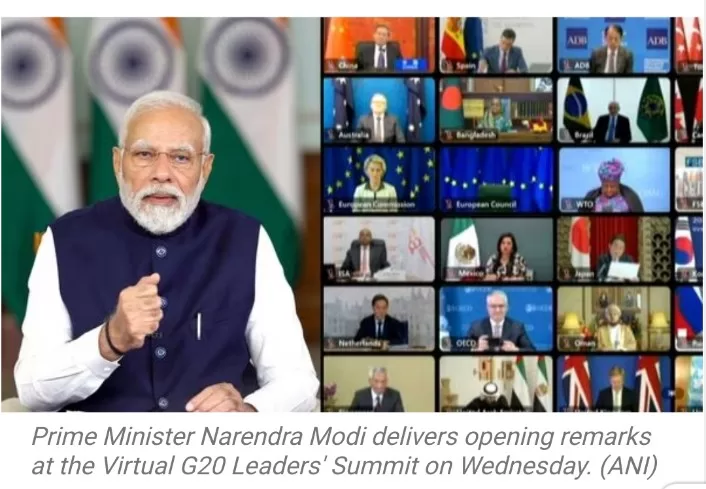New Delhi,Prime Minister Narendra Modi, during the Virtual G20 Leaders’ Summit opening, urged global leaders to ensure that the Israel-Hamas conflict doesn’t escalate into a regional dispute. Acknowledging concerns over disturbances and security-related issues in West Asia, Modi stressed the need for a collective effort to address these challenges.
The conflict, which commenced in early October, has resulted in loss of lives, property, and heightened volatility in oil and commodity prices. While currently contained within Israel and the Gaza Strip, there are fears it could extend across the entire Middle East, potentially impacting regional stability.
Modi’s remarks come at a crucial time, with the India-Middle-East-Europe Connectivity Corridor (IMEEC) framework potentially affected by the conflict. The conflict’s potential to disrupt a historic peace deal between Israel and Saudi Arabia, a linchpin of the IMEEC, raises concerns about the broader implications for the region.
During the summit, Modi emphasized the importance of addressing issues faced by developing economies, referring to the global south. He called for reforms in the global economy and governance structures to make them more effective, representative, and future-ready.
The Prime Minister also highlighted India’s commitment to sustainable development goals, announcing the creation of a global Digital Public Infrastructure (DPI) repository. With an initial capital of $25 million, India aims to implement DPIs in Global South countries, fostering social impact.
Additionally, Modi raised concerns about the negative impacts of Artificial Intelligence (AI) and announced a global AI partnership summit next month. He emphasized the need for safe AI that benefits society, cautioning against risks, including those posed by Deep Fakes.
The upcoming COP28 in the UAE was also discussed, with Modi stressing the importance of action on decisions related to sustainable development goals taken during the G20 Leaders Summit in September.
The summit aims to address global challenges, with leaders participating in discussions on climate change, conflict in Ukraine, multilateral development banks (MDBs) reforms, crypto assets, and the adoption of Digital Public Infrastructure (DPI).







